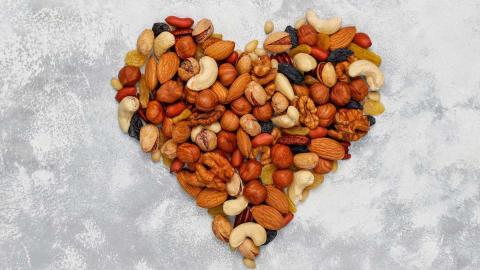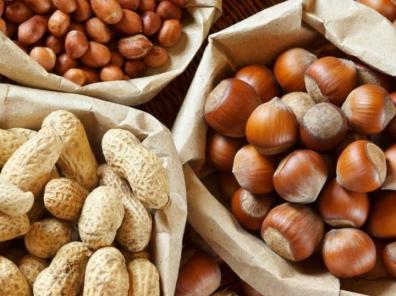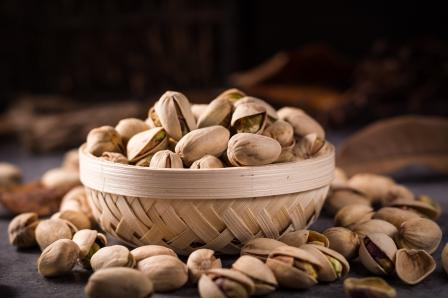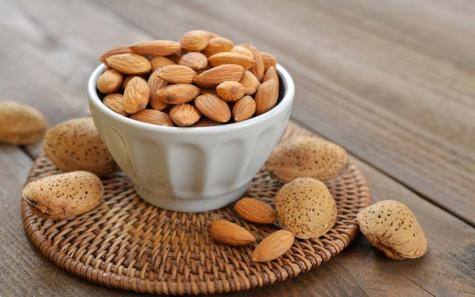Salted peanuts, a classic snack loved by many, are not only delicious but also packed with nutrients. Whether you enjoy them at a ball game, as a movie night treat, or just as a quick snack on-the-go, salted peanuts offer a satisfying crunch and a rich, savory flavor. In this comprehensive guide, we will explore the fascinating world of salted peanuts, including their health benefits, culinary uses, and some fun facts you may not have known. History of Salted Peanuts: The history of salted peanuts dates back to ancient times when the peanut plant was first domesticated in South America. Native to Peru, peanuts were cultivated by the Incas and later spread throughout the Americas. Peanuts eventually made their way to Africa and Asia, becoming a staple crop in many regions. In the United States, peanuts gained popularity in the early 19th century and were commonly used in various dishes, including peanut butter and boiled peanuts.

.
It wasn’t until the late 19th century that salted peanuts became a popular snack, especially at sporting events and fairs. Nutritional Benefits of Salted Peanuts: Despite their small size, salted peanuts are packed with essential nutrients that offer a range of health benefits. Peanuts are an excellent source of protein, providing all nine essential amino acids necessary for muscle growth and repair. They are also rich in healthy fats, particularly monounsaturated fats, which have been shown to promote heart health and reduce the risk of cardiovascular disease. Additionally, salted peanuts are a good source of dietary fiber, which aids in digestion and helps maintain a healthy weight. In terms of vitamins and minerals, salted peanuts are a powerhouse. They are loaded with vitamin E, an antioxidant that helps protect cells from damage, and B vitamins, which are essential for energy production and brain function. Peanuts also contain important minerals such as magnesium, phosphorus, and zinc, which play a role in bone health, energy metabolism, and immune function. Health Concerns and Considerations: While salted peanuts offer numerous health benefits, it’s important to consume them in moderation, especially for those with certain health conditions. Individuals with nut allergies should avoid salted peanuts and opt for alternative snacks. Additionally, some salted peanuts may contain high levels of sodium, which can contribute to high blood pressure and other health issues when consumed in excess. It’s essential to read nutrition labels and choose salted peanuts that are lower in sodium or opt for unsalted varieties. Culinary Uses of Salted Peanuts: Salted peanuts are a versatile ingredient that can be used in a variety of culinary applications. From savory dishes to sweet treats, salted peanuts add a delicious crunch and nutty flavor to any recipe.
..
One popular way to enjoy salted peanuts is in homemade trail mix, combining them with dried fruits, seeds, and dark chocolate for a nutritious and satisfying snack. Salted peanuts can also be incorporated into salads, stir-fries, and noodle dishes for added texture and flavor. For those with a sweet tooth, salted peanuts can be used in desserts such as peanut butter cookies, peanut butter bars, and peanut brittle. The combination of sweet and salty flavors creates a delectable treat that is sure to satisfy any craving. Additionally, salted peanuts can be ground into a creamy peanut butter or used as a crunchy topping for ice cream and baked goods. Fun Facts About Salted Peanuts: – The world’s largest peanut monument is located in Ashburn, Georgia, standing at 20 feet tall. – Peanut shells are often used in the production of livestock feed, biofuels, and disposable plates. – The average American consumes about 7 pounds of peanuts and peanut products each year. – Peanuts are not true nuts but are actually legumes, related to beans and lentils. – The peanut plant produces delicate yellow flowers that eventually develop into peanut pods underground. Conclusion: Salted peanuts are more than just a tasty snack—they are a nutrient-rich food that offers a wide range of health benefits and culinary possibilities. Whether you enjoy them on their own, in a recipe, or as part of a snack mix, salted peanuts are a delicious and versatile ingredient that can be incorporated into a variety of dishes. By understanding the history, nutritional benefits, and culinary uses of salted peanuts, you can fully appreciate the many reasons why this humble legume has become a beloved snack enjoyed by people around the world. So grab a handful of salted peanuts and savor the crunchy, flavorful goodness that this classic snack has to offer.
…
-Types of Salted Peanuts: There are several different types of salted peanuts available on the market to cater to various preferences and dietary needs. Some common types include: 1. Roasted and salted peanuts: These peanuts are typically dry-roasted to enhance their nutty flavor and then seasoned with salt for a savory taste. Roasting the peanuts brings out their natural oils, giving them a satisfying crunch. 2. Honey roasted peanuts: Honey roasted peanuts are coated in a sweet and sticky glaze made from honey, sugar, and spices before being roasted. The combination of sweet and salty flavors makes these peanuts a popular choice for snacking. 3. Cajun seasoned peanuts: Cajun seasoned peanuts are seasoned with a blend of spicy Cajun spices, such as cayenne pepper, paprika, and garlic powder, for a bold and zesty flavor profile. These peanuts add a kick to any snack mix or dish. 4. Tamari roasted peanuts: Tamari roasted peanuts are seasoned with tamari, a type of gluten-free soy sauce, for a savory and umami-rich flavor. These peanuts are a great option for those looking for a gluten-free snack. 5. Wasabi peas and peanuts mix: This unique snack combines roasted peanuts with crunchy wasabi peas, creating a flavorful and spicy blend that is perfect for those who enjoy a bit of heat. Benefits of Including Salted Peanuts in Your Diet: 1. Rich in Protein: Salted peanuts are an excellent source of plant-based protein, making them a great snack option for vegetarians and vegans. Protein is essential for building and repairing tissues, supporting muscle growth, and maintaining a healthy metabolism. 2. Healthy Fats: While peanuts do contain fats, they are predominantly monounsaturated and polyunsaturated fats, which are considered heart-healthy fats. These fats have been shown to help lower bad cholesterol levels and reduce the risk of heart disease. 3. Fiber Content: Peanuts are a good source of dietary fiber, which plays a crucial role in supporting digestive health, preventing constipation, and promoting feelings of fullness. Fiber also helps regulate blood sugar levels and cholesterol levels. 4. Nutrient-Dense: In addition to being a good source of protein, healthy fats, and fiber, salted peanuts also contain a variety of vitamins and minerals, including vitamin E, niacin, folate, magnesium, and zinc. These nutrients are vital for overall health and well-being.




Your comment submitted.